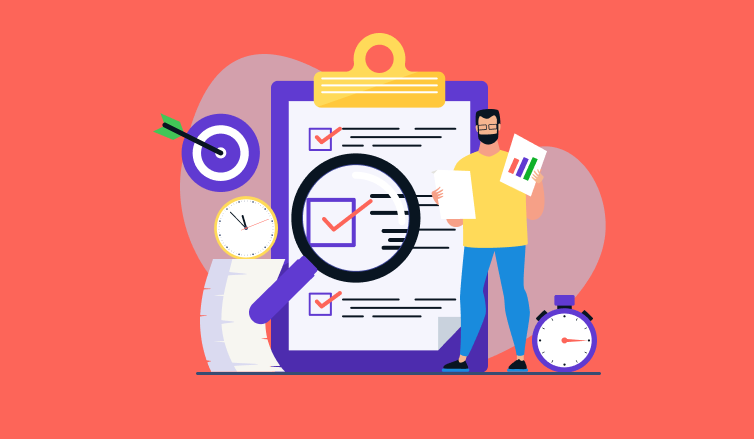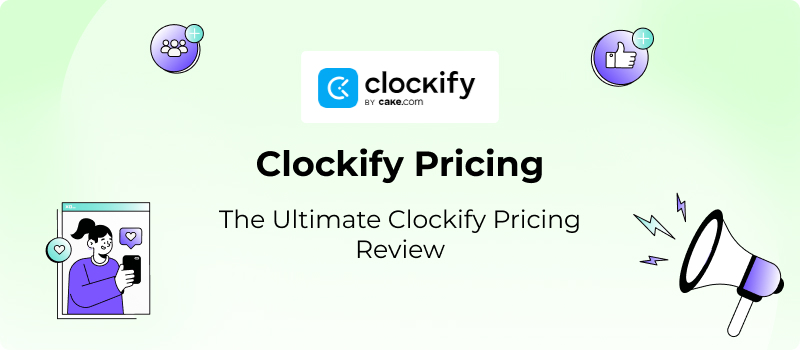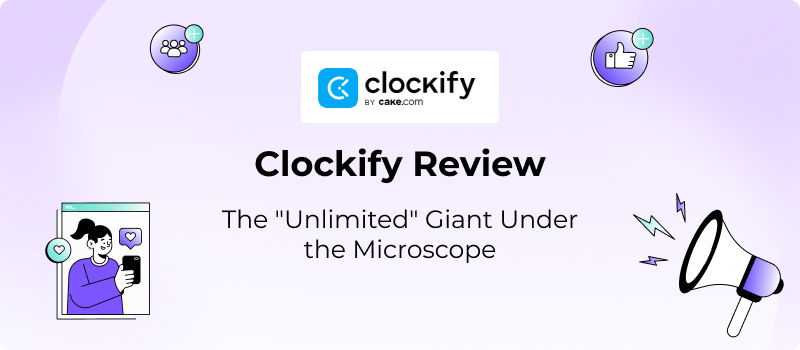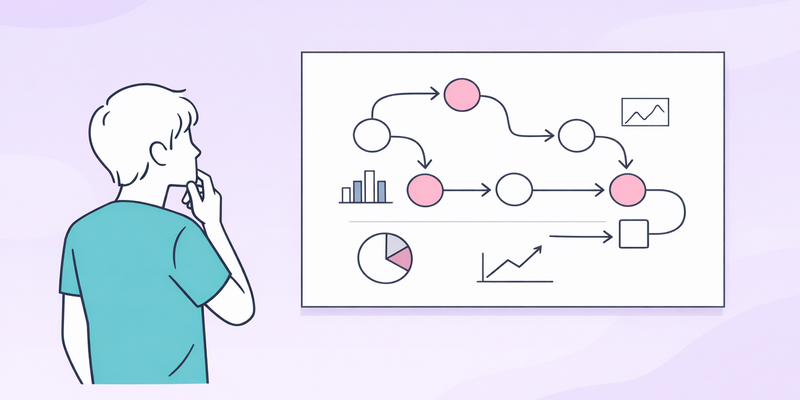
Productivity is not about the amount of time you spend working but about your ability to complete tasks consistently and effectively. If you lack focus, you may spend twice as many hours toiling over a job that might be done within a much shorter period if only you could zone in on its fulfillment. Therefore, the first thing you need to enhance productivity is better concentration. And who knows it better how to achieve this objective than those running their own businesses?
Entrepreneurs and small company owners bear the burden of immense responsibility for the success of their ventures. They can’t just give in to the temptation to procrastinate or get easily distracted on trivial matters without risking to be outperformed by their more productive rivals. Therefore, entrepreneurs surely know how to stay focused on what’s important and are experienced in practicing diverse focus-boosting methods.
Their most recommended practices are described below.
How to Fight Distractions
Avoiding distractions is challenging, yet they are the main enemies of focus. Even if you have the right mindset to work productively, distractions will constantly pull your attention from the goals and, eventually, will make you less efficient. Hence, it’s pivotal to find how to remove all the interfering things from the way towards better performance.
Here’s how you can do it:
1. Silence your phone and notifications
Smartphones are the leading source of distraction for modern people. We receive countless messages, emails and calls daily and often feel urged to respond to them as quickly as possible. But the Founder of Money Tamer, Steffa Mantilla notes that by turning off notifications and silencing your phone, you can easily lull this feeling for a while:
By turning off notifications and distractions, you’re able to get into a flow and zone of creative genius. In this state of flow, you are in a positive headspace and can get so much more work done than during times of disengagement and distraction. I often have my best ideas and work sessions when I’ve gone as tech-free as possible.
2. Designate a distraction-free space for work
To stop being distracted to unwelcome noises and unpleasant sensations caused by many inconveniences of our physical surroundings, one must have a well-arranged workspace. Besides, when you designate just one area for doing business, you help yourself get in the right mindset faster and remain focused on work for longer periods.
According to Quinn Osha, the Founder of Topmarq, a small online business for car enthusiast:
Your body is an associative engine and works best when it knows that one area is for relaxing and the other is for work. Over just a short time, your mind will naturally associate the location with work and it becomes easier to stay on track and productive while in your workspace. This has become increasingly important as more and more people work from home.
3. Employ website-blockers
Another major source of distraction in our life is the Internet. While providing us with the wealth of valuable information, it makes the access to immediate pleasures of endless browsing, video watching and feed scrolling terribly uncomplicated.
If you have a habit of indulging in easy entertainment on the Internet during your work hours, you may benefit from installing a website-blocking tool. Here’s what Thomas Jepsen, the CEO of Check4Lead, told us about the way such software works:
Tools like RescueTime help you track how much time you are spending on different websites. Then, when you’ve found that you may have too much of a tendency to go on Buzzfeed during the day, you may install a plugin that blocks this time-wasting website for specific hours, thereby ensuring you aren’t even able to visit it if you wanted to.
How to Organize Your Time Effectively
Adequate time management is key to better focus.
Our attention flows in cyclic rhythms throughout the day and depends on the amount of mental energy we have. You can’t expect yourself to be concentrated on one activity for an extended period or capable of focusing both in the morning and in the night with the same level of success. Thus, by distributing your working time across tasks in conformity with natural body cycles, you’ll do a wise thing and maximize your productivity potential.
4. Divide working time into manageable blocks
It’s usually extremely hard to stay focused on a task for several hours in a row, and it’s always better to break up your working time into smaller chunks. For this reason, time blocking is very popular among entrepreneurs. According to Jeff Rose, the Founder of Good Financial Cents, this technique fosters uninterrupted times of focus, helps to stay organized and prevents multitasking:
There’s always going to be another email to respond to, a proposal to be prepared for, a potential prospect you could close. If you are jumping from one task to the next, you waste a lot of time as your brain can’t mentally shift from one thing to another right away. Whereas, having specific blocks of time where you focus on one task and one task only, you can get much more done.
5. Use the Pomodoro Technique
A great way to break down your working time into smaller manageable pieces is by using the Pomodoro Technique. This time management method was designed by Francesco Cirillo. Equipped with a simple kitchen timer, he started to work on projects by using 25-minute intervals with shorter breaks in between. As a result, he managed to increase focus, avoid process interruptions and enhance performance efficiency.
Today, you can choose among a multitude of different digital Pomodoro-style timers. Besides, you may freely adapt the original technique to your own time blocking preferences and overall needs, just like a Co-Founder of The Dog Tale, Daniel Caughill did:
I’ve programed my Pomodoro timer to alternate between 40-minute working sessions and 5-minute breaks, with a longer 15-minute break after every three sprints. I find that 40 minutes is a short enough amount of time for me to feel okay about ignoring Slack and email, while long enough to get a meaningful amount of work done.
6. Find your most productive hours
Another thing to remember when designing a work schedule is your most productive hours – the time of the day when you have the right amount of energy and mental capacities for staying focused on a specific task.
Finding his productivity peak hours helped Jason Cherubini, a Co-Founder of Dawn’s Light Media, to keep focus and accomplish more during the day:
I have found that I am more productive at mental work in the morning, so whatever tasks I need to accomplish that involve focus will be done better and more efficiently in the morning. Because of this, I reserve my morning work hours to attack these tasks and not get sidelined by things I can do with less focus and energy, such as meetings and calls. In my experience, pushing meetings and calls to the afternoon is a small and easy change, that drastically increases my productivity in a given day.
How to Build Energy and Get in the Mood for Work
If you’re physically and psychologically exhausted, there are fewer chances to keep focus and remain productive. As your energy drains, you lose a positive attitude and your mood drops – without them, you won’t be able to go far enough. Therefore, it’s essential to balance the hours of active performance with sufficient rest and take care of your health in general if you want to be efficient.
7. Have quality sleep
The founder of LifeUpswing, Chris Panteli told us that quality sleep is the number one thing helping him to be focused and productive:
Some of Chris’s top recommendations on how to foster better sleep are the 4-7-8 Breathing Technique and the Military Method. You can learn more about them on this page.
8. Take regular mid-day breaks
Taking quality breaks from work during the day is as important as sleeping well during the night. They help us to reboot and continue with a fresh start.
Let’s see what Adrian Miller, the Founder of Adrian Miller Sales Training, shared with us on this matter:
I schedule my tasks for the day making certain to leave some “break time” in between so I can clear my head and return to the next task with renewed energy and enthusiasm. The key here is to get up and avoid going down the rabbit hole of work with eyes glued to the screen. Remember that 1-2 hours of work deserves 15 minutes of breaktime. Do that and you’ll be more productive and energized.
9. Develop the start-of-the-day and end-of-the-day routines
Did you ever notice that when you start the morning chaotically, disorder and all sorts of frenzy often find their way to affect you throughout the day, but when you commence the morning calmly and manage to complete all your routines, you become more prepared for whatever is planned and have a greater sense of control? This is because following a healthy routine is a great focus-boosting method.
You can add any practices to your routine that would help you promote well-being and get into the right mood for either work or rest. For a prominent SEO specialist, Daniel Foley, morning and evening walks are part of that:
Even when working from home, take a short 10-minute walk in the morning and the evening. I use it as my ‘travel to work’ time, which is a great way to clear my head and prepare for the day. In the evening, such a walk helps me to switch off and then enjoy my evening and relax, so I am fully energized for the next day.
How to Fight Procrastination
Procrastination happens to all of us. We have a tendency to put off hard-to-attain tasks and, instead, let ourselves indulge in immediate pleasures. As a consequence, we may feel guilty when failing to become as productive as we wish or grow anxious as the deadline is creeping up on and the work isn’t moving an inch. Luckily, there are some good cures to procrastination, and their effectiveness is tested by our entrepreneurs.
10. Set deadlines
Having a realistic deadline is one of the most efficient ways to keep yourself focused, regardless of whether you’re developing a product for a client or working on an internal project of any kind. Deadline is a timebound objective and this fact alone can motivate you to stay concentrated on work out of the sense of responsibility or due to a desire to feel accomplished once the objective is successfully achieved.
But if no psychological tricks persuade you to focus in order to meet a long-term deadline and you can’t get rid of an idea that there’s still lots of time ahead for making the things done, try setting pre-deadlines. According to Damon Nailer, the Founder of Kitril:
Pre-deadlines are a truly effective and revolutionary way of keeping yourself on time and, in most cases, ahead of time. For example, if a project deadline is on June 10, you can set your personal deadline for June 5. Doing this will enable you to become more efficient and timely in completing tasks.
11. Apply a two-minute rule
According to Ashley Monk, the CEO of It Media, an excellent thing you can do to fight reluctance to work is forcing yourself to start a task and keeping at it for two minutes:
The concept of the two-minute rule is simple: any task you’re dreading, just begin for two minutes. Here’s the kicker – if you feel put in a box or got caught on to a trick – stop the task after the allocated time. Though the goal is just to start, you’ll eventually finish the job anyway – building a habit of tackling tasks you want to avoid is the most effective way to complete them.
12. Know your priorities to stay motivated
It’s very easy to stay focused when you know that whatever you do brings you closer to your goal and contributes to your progress and development. Hence, for higher productivity, one needs to identify their own professional and personal objectives and keep the eyes on the prize since this is what motivates us to act best.
Here’s what Lorrie Thomas Ross, the CEO and Marketing Specialist at Web Marketing Therapy, told us about the importance of prioritization and intrinsic motivation:
The key to overcoming the challenge of staying focused and motivated is to allocate the majority of your time on the main thing(s) that your business can’t survive without. When you know what this thing is, it becomes your guiding light. It helps you do work that is more aligned with your gifts so you are actually motivated.
How to Plan Your Work
Planning leads to better organization and less chaos. Not only it allows for preventing distractions but also helps you develop a deeper understanding of what you need and want to do. So, let’s see how to stay focused thanks to efficient work planning.
13. Make to-do lists
Making a to-do list may seem like a trivial method for staying focused since it’s so familiar to everyone and frequently used in even the most insignificant everyday situations. However, it is so common only because it’s super effective. It helps us to remember things, define objectives and prioritize tasks, which is particularly important when new chores continue to emerge on your schedlue daily and weekly.
With a to-do list, you may save much time and reduce decision fatigue considerably. However, for a to-do list to serve you well, you also need to pay attention to the items you include in it. Melissa Teng, the Creative Director and Co-Founder of Wit and Folly, says that small and manageable to-dos work best:
14. Plan ahead
Planning in advance helps us be more efficient, allowing for a better time management and ridding us of a necessity to repeatedly think about things that must be done – you may just look at the pre-made plan, and jump on a task right away!
Marielle Melling from Lovin’ Life with Littles told us that planning at the end of the workday makes her be more productive and concentrated:
I have found that the beginning of my work day is the most productive and easiest time to stay focused. By prioritizing the night before, I’m able to get right into accomplishing first thing in the morning.
15. Use project management tools
When you have myriads of tasks to complete and intend to realize some complex projects, it’s always better to refer to the help of specialized planning software. Compared to manual paper-and-pencil tools, they allow for an easier visualization of your work plans, evaluation of workloads and task prioritization.
In the experience of Connie Heintz, the Founder of DIYoffer, a tool with project management functionality fosters more efficient work organization and streamlined task management:
Optimizing and streamlining tasks on my daily to-do list helps me avoid procrastination and get more done. I use Trello and Slack to organize tasks in order of priority and based on similarity. For example, if I need to create and schedule social media posts and a newsletter, I streamline these tasks side by side so that I work on them one after the other. By doing this, I don’t have to change my thought process or slow my momentum, which allows me to stay focused and accomplish more during the day.
If you’re thinking of using a project management tool yourself, actiTIME may be a perfect match! This piece of timesheet software has some work scope management features that allow for creating multiple projects and tasks and assigning them to different members of your team. With actiTIME, you can oversee the total scope of your projects and prepare them for further productive work. Moreover, the tool’s time tracking functionality will let you analyze your business’s productivity trends and, thus, enable you to make smarter time distribution decisions.
Summary
Let’s sum up our entrepreneurs’ recommendations on how to stay focused and productive:
- Silence your phone and notifications,
- Designate a distraction-free space for work,
- Employ website-blockers,
- Divide working time in manageable blocks,
- Use the Pomodoro Technique,
- Find your most productive hours,
- Get quality sleep,
- Take regular mid-day breaks,
- Develop the start-of-the-day and end-of-the-day routines,
- Set deadlines,
- Apply the two-minute rule,
- Know your priorities to stay motivated,
- Make to-do lists,
- Plan ahead,
- Use project management tools.
Be sure to try them out and get ready to meet your new productive and focused self!














































![9 Best Contractor Time Tracking Apps for 2026 [Free & Paid]](https://www.actitime.com/wp-content/uploads/2020/10/how-to-find-efficient-contractor.png)

